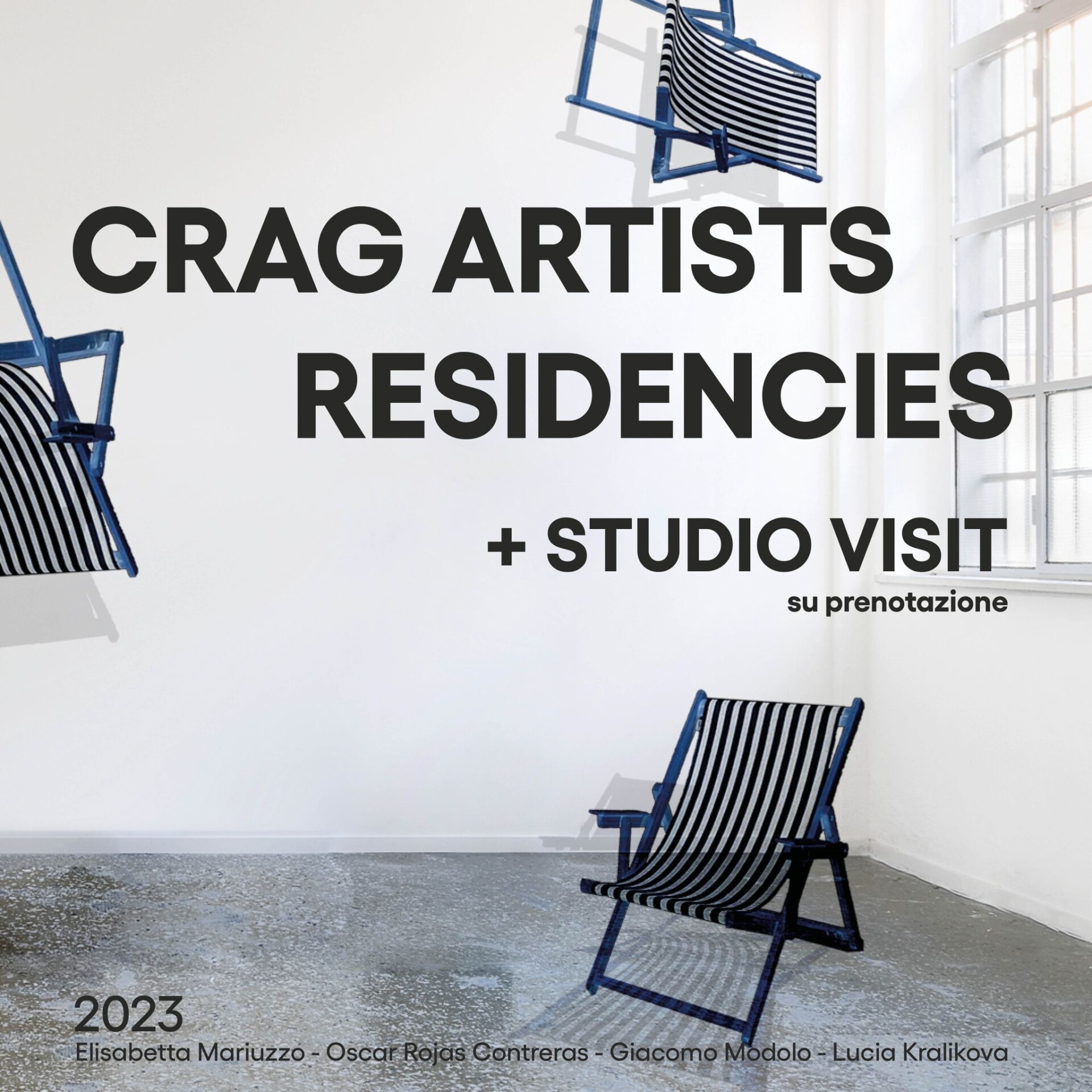
Graphics @slustudio Milan

Elisabetta Mariuzzo (ph. Bruno Barbero)

Giacomo Modolo (ph. Bruno Barbero)

Lucia Kralikova (ph. Bruno Barbero)

Oscar Contreras Rojas (ph. Bruno Barbero)
Intervista su Exibart https://www.exibart.com/arte-contemporanea/residenze-dartista-crag-gallery-si-trasforma-in-atelier/
LUGLIO – AGOSTO 2023
Crag gallery per la seconda edizione si è trasformata in atelier per artisti: il loft di via Parma 66d è diventato libero spazio dove gli artisti selezionati della galleria si incontrano per lavorare ad un nuovo progetto.
Elisabetta Mariuzzo, Oscar Rojas Contreras, Lucia Kralikova e Giacomo Modolo sono stati invitati a riflettere sul tema dell’AUTOCENSURA, a partire dal dialogo con Alessandro Chetta, giornalista, scrittore e poliedrico creativo. Il lavoro degli artisti mira a far emergere l’urgenza della riflessione a partire dal recente libro di Chetta “Non sia mai detto! Discorso sull’autocensura (arte, politica, maternità)” edito da Aras Edizioni.
Le opere realizzate durante la residenza d’artista verranno esposte in mostra durante il periodo di Artissima, con la volontà di coinvolgere il pubblico e confrontarsi su questa tematica quanto mai attuale e complessa.
Alessandro Chetta “Dalla cancel culture, il movimento di opinione che vorrebbe rimodulare temi classici, la cultura della cancellazione per rispondere a nuovi dettami morali, si passa all’auto cancel culture. Con questo termine si indica il comportamento di chi viene convinto dagli influencer, per esempio, a fare o a dire qualcosa che non si vuole realmente fare o dire. In una dimensione di convivenza civile l’auto censura è una forma di buon senso, ma quando colpisce la creazione artistica non è accettabile. Nel Novecento e nei secoli precedenti colui che veniva definito eretico andava contro lo Stato o la religione: un esempio può essere Pierpaolo Pasolini. Mentre nel passato, quindi, qualsiasi cosa poteva creare scandalo, ai giorni nostri il nemico é impalpabile. Ora il laicismo ha molta presa sul mondo rispetto alla religione, sui social si dibatte di temi sociali, quali il razzismo o la questione LGBT, e ciò fa sì che l’autocensura sia ovunque e ovunque si può fare del male a qualcuno. Per quanto riguarda la figura dell’artista, egli, autocensurandosi, momentaneamente può ottenere successo, ma in seguito non avrà la possibilità di eternarsi.”
JULY – AUGUST 2023
For the second edition, Crag gallery has been transformed into an atelier for artists: the loft in via Parma 66d has become a free space where selected artists from the gallery meet to work on a new project.
Elisabetta Mariuzzo, Oscar Rojas Contreras, Lucia Kralikova and Giacomo Modolo were invited to reflect on the theme of SELF-CENSOR, starting from the dialogue with Alessandro Chetta, journalist, writer and multifaceted creative. The artists’ work aims to bring out the urgency of reflection starting from Chetta’s recent book “Never said! Discourse on self-censorship (art, politics, motherhood)” edited by Aras Edizioni.
The works created during the artist residency will be exhibited during the Artissima period, with the aim of involving the public and discussing this topical and complex issue.
